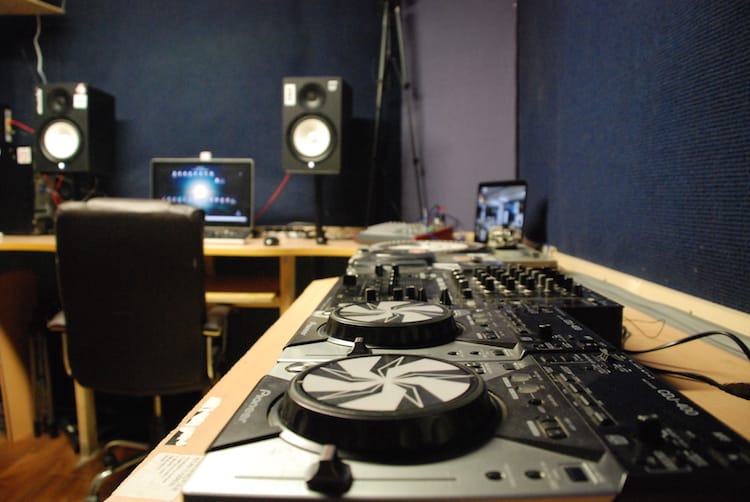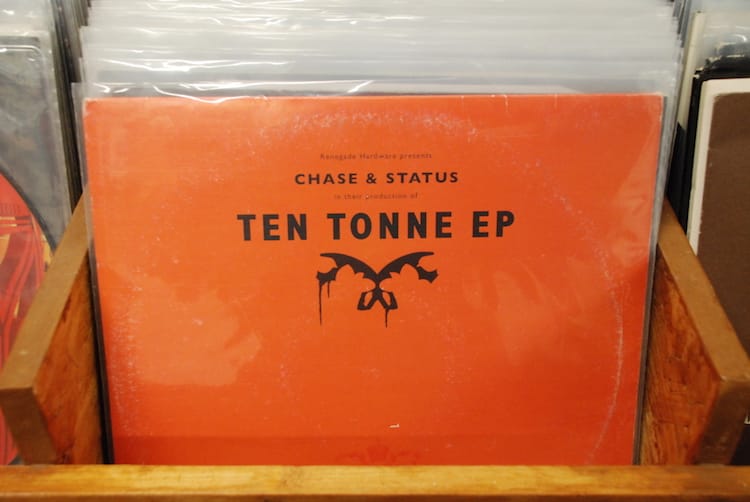Time to crack down on illegal parking in disabled spots, councillors say
Increase fines for the offence, and boost parking enforcement so people begin to fear getting caught, they say.
Pawel Szoka says he wants to serve the city’s healthy and growing scene.

After he left his hometown of Gizycko in north-eastern Poland, Pawel Szoka discovered vinyl records.
“I was amazed,” says the 34-year-old record producer and DJ, who, in 2001, moved to Olsztyn in northern Poland for university. “Actually, all of my friends I lived with, in our student apartment, were amazed by vinyl records.”
In Osten, Techno DJs filled local clubs. Szoka’s friends bought a turntable, and then a belt drive and a mixer with no equaliser. They played a single record: Groove Armada’s Superstylin’.
“For ages, this same record. We only had the one,” he says. “It was difficult to find good vinyl in Poland in those days.”
Seventeen years later, at a small unit in an industrial estate just off Richmond Road in Drumcondra, Szoka is about to open his own drum-and-bass and jungle studio and record store.
To produce and release drum-and-bass music was Szoka’s goal when he first moved to Ireland in 2007. He tried that for a year, but struggled to find a label to work with him, he says.
“So I just started my own,” he says.
Szoka set up Absys Records in 2008 – and he launched his new store and studio as base of operations last week.
Inside his space, white plastic “D ‘N’ B/Jungle” labels sit behind dozens of freshly pressed records that line plywood units.

Working from scratch, it has taken two years to get it up and running. He describes it as “a kind of record store.”
Alongside his vinyl selection, Szoka aims to use his new space for record launches, production, talks and even badge-making.
At the far end sits a small studio, complete with turntables, decked out in kit, ready for the next drum-and-bass, jungle, or house musician.
Szoka is keeping it casual for a while, as he gathers feedback from local DJs and producers about how best to tweak the store and space ahead of an official opening, planned for June.
Dublin’s drum-and-bass scene is healthy though, says Szoka. It has been, he says, since Basement Records first popularised it in the city in the 1990s.
For those who are into the genre – a branch of electronic music that emerged in England in the early 1990s as an offshoot of jungle and house music – it has gone from strength to strength.
It’s more than mainstream artists like Pendulum and Chase & Status, says Szoka. “That’s loud music.”
Peel back the layers, the repetitive loops and sub-genres that derive from drum and bass, and “it’s completely different music”, he says. “It’s a different sound.”
Early drum-and-bass records tend to be over-produced, with a host of collaborators working on the one piece, says Szoka. “These days it’s usually one person, sometimes two. They’re producing and mixing everything.”
The calendar of Dublin gigs is busy. There are regular nights at Berlin on Dame Street and Wigwam on Abbey Street, Szoka says.
Each drum-and-bass DJ has their own sound. “You find your own way how to make it,” he says. “And you express your emotion.”

Joint Efforts
Szoka had a hand in getting his new space in shape from Julius Horvath, a member of drum-and-bass promoters Springfield Crew Massive.
“We were talking about this for a long time,” says Horvath. Dedicated drum-and-bass spots are few and far between here, compared to the “huge scene” back in his native Czech Republic, he says.
Dublin’s scene is still growing, Nowy says. “When I started organising parties, Dubliners were more into jungle, or mainstream drum and bass,” he says. “But now there are more crews, new crews, new blood. Some are popular all over the world. So it’s getting better and better.”
Beyond drum and bass, and jungle, Szoka wants “to collaborate with as many different people as possible” once his new space opens officially this summer.
To the right of the studio, behind a black curtain, there’s a tiny nook. A friend of his plans to use that to repair electronics, decks and turntables, says Szoka.
When Szoka went to his first drum-and-bass gig at 19 years old, it spelled the end of house music for him. “I threw everything out,” he says. “Now this is the headquarters.”